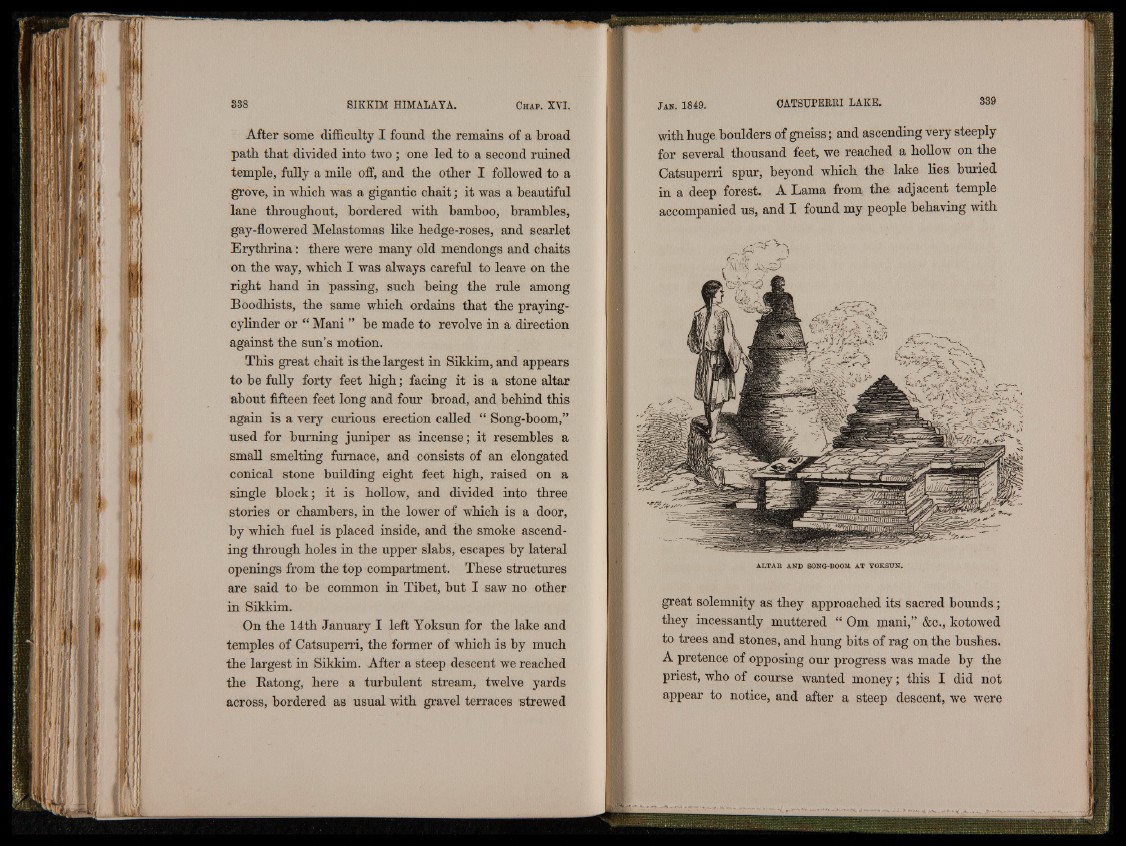
After some difficulty I found tlie remains of a broad
path that divided into two ; one led to a second ruined
temple, fully a mile off, and the other I followed to a
grove, in which was a gigantic chait; it was a beautiful
lane throughout, bordered with bamboo, brambles,
gay-flowered Melastomas like hedge-roses, and scarlet
Erythrina: there were many old mendongs and chaits
on the way, which I was always careful to leave on the
right hand in passing, such being the rule among
Boodhists, the same which ordains that the praying-
cylinder or “ Mani ” be made to revolve in a direction
against the sun’s motion.
This great chait is the largest in Sikkim, and appears
to be fully forty feet high; facing it is a stone altar
about fifteen feet long and four broad, and behind this
again is a very curious erection called “ Song-boom,”
used for burning juniper as incense; it resembles a
small smelting furnace, and consists of an elongated
conical stone building eight feet high, raised on a
single block; it is hollow, and divided into three
stories or chambers, in the lower of which is a door,
by which fuel is placed inside, and the smoke ascending
through holes in the upper slabs, escapes by lateral
openings from the top compartment. These structures
are said to be common in Tibet, but I saw no other
in Sikkim.
On the 14th January I left Yoksun for the lake and
temples of Catsuperri, the former of which is by much
the largest in Sikkim. After a steep descent we reached
the Ratong, here a turbulent stream, twelve yards
across, bordered as usual with gravel terraces strewed
with huge boulders of gneiss; and ascending very steeply
for several thousand feet, we reached a hollow on the
Catsuperri spur, beyond which the lake lies buried
in a deep forest. A Lama from the adjacent temple
accompanied us, and I found my people behaving with
ALTAR AND SONG-BOOM AT YOKSUN.
great solemnity as they approached its sacred bounds;
they incessantly muttered “ Om mani,” &c., kotowed
to trees and stones, and hung bits of rag on the bushes.
A pretence of opposing our progress was made by the
priest, who of course wanted money; this I did not
appear to notice, and after a steep descent, we were